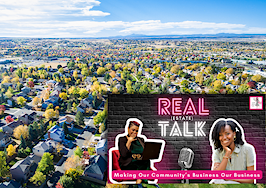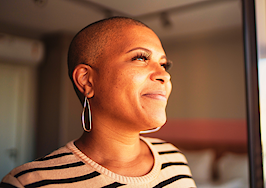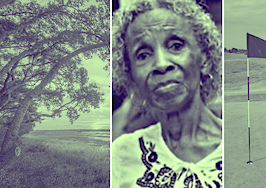“It was the best of times, it was the worst of times,” Charles Dickens wrote in A Tale of Two Cities. And that’s probably what many agents feel about the current landscape and messaging coming from leadership at the National Association of Realtors as they respond to sexual harassment and discrimination allegations.
NAR loves to lean on the “we” of it all. Its slogan is “That’s who we R.” Let’s think about this “we” and what it means to be a part of that organization.
Is this really who we ‘R’?
The past few years have shown the best and worst of the real estate industry (housing, mortgage and appraisal) to the communities we serve.
We have collectively apologized and publicly committed to fair treatment of everyone when it comes to their housing needs while simultaneously seeing accusations of unfair treatment (like redlining, sexual harassment, appraisal bias and other forms of discrimination) and panic.
Last month, an anonymous letter, signed by “a confidential coalition of 37 involved Realtor leaders,” appeared in the mailboxes of more than two dozen NAR past presidents, according to recent reports.
“We are in a crisis management situation, and the members MUST speak out.”
I have focused so much on equitable access and opportunity for our communities and colleagues — fair housing and DEI — in my workshops and articles because infractions keep happening. We may be tired of hearing about such issues but banishing these conversations and classes to “Neverland” to ignore them and dodge grown-up solutions, does not make them magically disappear.
Instead, there is cognitive dissonance.
That is what I often sense when seeing and hearing marketing slogans like “That’s who we R.” That is because I feel a sense of hope in many of our national, state and local initiatives to make homeownership a reality for everyone.
Yet, there is also a sense of outrage that we are heading into 2024 with certain damning issues that seem to stick like glue since they predate federal fair housing and civil rights laws. It is likely jarring for some of you — as well as the public.
Who is this ‘we’?
To remedy this, I am reminded of a life lesson my parents taught me. I remember pleading as a tween to go to risqué teenager, upper-classman events because “Everybody would be there” and “We are going to be extra careful.”
The moment I heard, “Who is ‘everybody’?” or “Who is this ‘we’ you keep mentioning?”, I knew I’d have to give a detailed account of all my peers who would be present. If any of the names meant “mud” to my family because of recent hijinks, then my parents quickly dissociated my collective “we” to “them.”
“Their parents may think it is okay, but you are in our family, not theirs.”
“If they jumped off a bridge, would you do it too?”
Yes, we were all classmates but there was indeed a distinction in our personal values. My parents were instilling in me the bravery to be simultaneously part of a community (school) without that community engulfing my identity with conflicting, likely harmful, values through groupthink.
Unfortunately, it is not solely a teenage compulsion. Check out this Miami agent who also used the excuse that “everybody” was doing what she was doing. Better a parent than a judge asking, “Who is everybody?”
Am I saying we should simply throw our hands up and figuratively burn the whole thing down?
As my 90-something grandmother says, “You don’t throw the baby out with the bathwater, Honey!”
Unsurprisingly, much-needed legislation was not a “bippity boppity boo” Cinderella-story magical moment, as I frequently remind the students in my fair housing workshops.
Laws – of any type – have never meant that violations of those laws no longer occur. Case in point: Simply watch the ID channel or Dateline. Murder is almost as old as time — and has always been illegal — but still happens. Yet, it is not inevitable.
Unfairness in our industry, whether among clients or colleagues, is not inevitable either. How do I know?
Let’s not forget our history
Let’s take a lesson or two from the past with the help of excerpts from the “Cliff Notes”-esque study guide, How to Be a Fair Housing Decoder.
“Greenlined” (1930s): Do you know the key reason why a singular Black community in Savannah, Georgia, out of hundreds nationwide was given a “green” rating and was not “redlined”? The then all-male, all-white lenders of the area advocated to continue doing business with the community. Fair Housing Decoders have been around since the beginning.
Realtor Advocacy for Fair Housing (1960s): Although Realtor associations campaigned to obstruct the passage of fair housing laws, a small but mighty number of members (remember, at this time it was all-white and mostly male) vocally opposed (some even made the newspaper) their associations and advocated for fair housing.
Professional Collaboration (1940s – now): Most importantly, we see the continued work and advocacy of various special interest groups that were once denied the status of Realtor (namely the Women’s Council of Realtors (WCR), the National Association of Real Estate Brokers (NAREB), the National Association of Hispanic Real Estate Professionals (NAHREP), the Asian Real Estate Association of America (AREAA), and the LGBTQ+ Real Estate Alliance (The Alliance) just to name a few).

‘We’ are brave too
Notice fair treatment was not predicated on legislation but rather on brave people committed to a community without being engulfed by that community through harmful groupthink. Legislation is great for giving those injured some form of restitution when violations do happen.
However, our industry at its best has been a beacon for our neighbors and colleagues simply by the bravery of everyday professionals. That’s the “we” my hope has been in as I have met so many of you nationwide at our local and state associations. This group of “we” have workshopped together ways to advocate for the most vulnerable among our communities and colleagues, which has filled me with so much hope.
Advocacy brings problems to the light to create positive change — it takes brave people to do that. That is who our neighbors and colleagues need us to be and that is who “we” are.
Lee Davenport is a licensed real estate broker, trainer and coach. Follow her on YouTube or visit her website.













